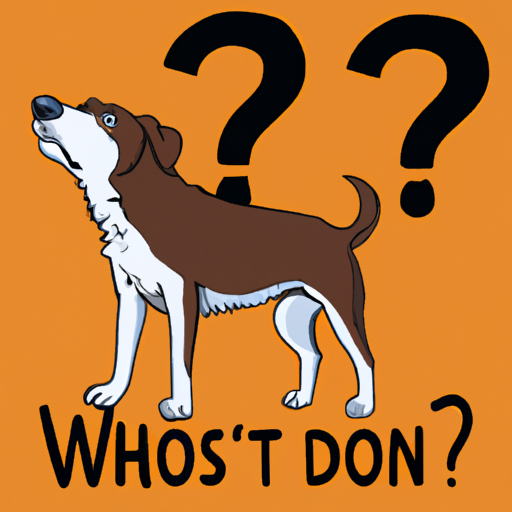Understanding Your Dog’s Behavior
You must have seen your dog pointing – standing perfectly still with one leg raised, directing its nose towards something of interest. It’s a fascinating sight, isn’t it? But have you ever wondered why your dog does this? As a caregiver, it’s not just about feeding and taking care of your pet but also about understanding their behavior. So let’s delve into this mystery together.
In essence, dogs point as a way of communicating with you – their human partner. This behavior is a throwback to their ancestral hunting days, where pointing dogs would signal the location of prey to their human hunting counterparts. Understanding this can help you connect with your pet on a deeper level.
The Origin of Pointing in Dogs
In the wild, pointing is a hunting technique. Dogs, being descendants of wolves, have retained this instinctual behavior. Early hunters recognized this trait and selectively bred dogs that exhibited it. Today, we see pointing in various dog breeds, most notably in the “pointer” breeds.
| Pointer Breeds | Description |
|---|---|
| English Pointer | Known for their exceptional pointing skills, often used in bird hunting |
| German Shorthaired Pointer | Versatile hunting dogs, they point and retrieve |
| Vizsla | Hungarian breed with a natural ability to point, often used in falconry |
The Science Behind Pointing
When a dog points, it’s not just a random act but a complex interaction of genetic, physical, and psychological factors. Here’s how it works:
- The Nose Knows: Dogs have an exceptional sense of smell, over 40 times more powerful than humans. When they catch a scent, they stop to better identify it.
- The Point: As the dog processes the scent, it goes into a trance-like state. That’s when the point happens – the dog freezes, often lifting one front paw.
- The Wait: The dog stays in this position, waiting for the “prey” to make a move.
What Does This Mean For You As a Caregiver?
As a caregiver, it’s important not just to understand why your dog points but also what to do when it happens. The best approach is to acknowledge their pointing behavior and use it as a bonding opportunity. Remember, your dog is trying to communicate with you. When you respond, it strengthens your relationship.
- Do not scold your dog for pointing. It’s a natural instinct.
- Use the moment to engage your dog in a game of fetch or hide-and-seek.
- Train your dog to associate the pointing position with rewards.
Frequently Asked Questions (FAQs)
Q: Is pointing a sign of aggression in dogs?
A: No, pointing is not a sign of aggression. It is a hunting behavior.
Q: Can I train my dog not to point?
A: It’s not advisable. Pointing is an instinctual behavior and suppressing it could lead to stress or anxiety.
Q: Does every dog point?
A: No, not all dogs point. It’s most common in certain breeds such as pointers and setters.
Q: Can I train my non-pointer dog to point?
A: While it’s possible, it may not come as naturally to non-pointer breeds.
Learn to embrace and appreciate your dog’s unique behaviors. After all, it’s these quirks that make them such lovable companions.



